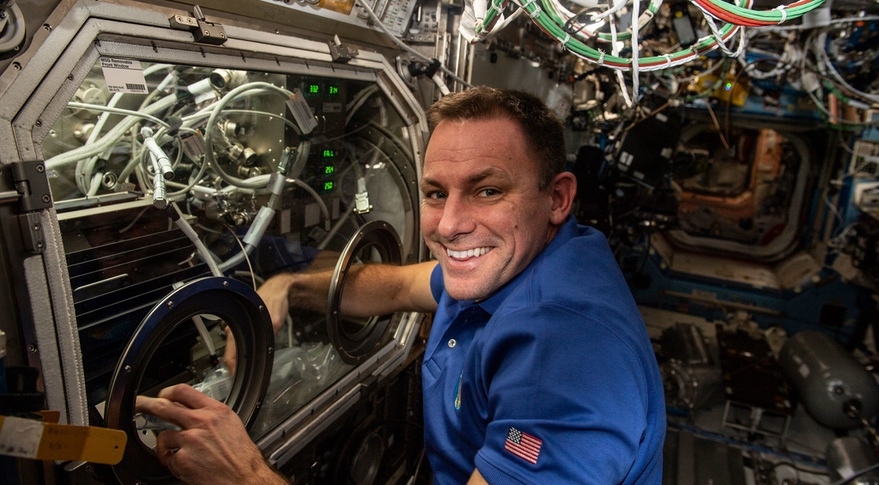19.01.2023

NASA astronaut Josh Cassada
WASHINGTON — A budget shortfall has caused NASA to scale back plans for a project that would support sending scientists to the International Space Station to conduct research.
NASA sought funding in fiscal year 2023 for Commercially Enabled Rapid Space Science, or CERISS, intended ultimately to allow scientists to fly on private astronaut missions to the ISS or future commercial space stations to conduct “hyper-specialized” research more effectively than if done by a professional astronaut.
Craig Kundrot, director of NASA’s biological and physical sciences division, said at a July meeting of a National Academies committee that having scientists conduct research in space would be far more efficient, predicting “a factor of 10-fold increase in speed of research, and even 100-fold.”
CERISS depended on securing a budget increase for his division, which received $82.5 million in fiscal year 2022 and requested $100.4 million in fiscal year 2023. NASA planned to spend less than $10 million on CERISS in 2023 but expected it to grow to about $25 million by 2028, enabling scientist flights to the ISS to begin as soon as 2026.
However, in a Jan. 18 town hall meeting by NASA’s Science Mission Directorate, he said those plans had changed. His division received only $85 million in an omnibus spending bill for fiscal year 2023 enacted in December. When accounting for inflation, that amount is slightly less than what the division received in 2022.
“Our commercial initiative to work with industry to increase the pace of research 10- to 100-fold in low Earth orbit is dialing back to just do analysis and planning this year,” he said, blaming it on the budget cut. “We will not be releasing calls for contracts or grants, but we will be planning for the future.”
NASA has kept open two requests for information (RFIs) related to CERISS. One, released in July, sought information on commercial capabilities to support crew-tended research in low Earth orbit. The other, published Nov. 29, asked the scientific community about its interest in conducting research in LEO on private astronaut missions. Both included the possibility of testing research hardware and techniques on crewed suborbital flights. The RFIs are open through March 31.
Kundrot said in July that the responses to the RFIs would support future solicitations for grants to develop and test research hardware and analysis capabilities. At the town hall meeting, he did not elaborate on the future planning NASA will conduct for CERISS in lieu of solicitations.
Kundrot, who is retiring from the agency at the end of the month, said that the budget shortfall will affect other programs in his division. Proposals for research in two topics, titled Quantum Science and Thriving in Deep Space, will be selected, but the awards themselves not made until fiscal year 2024.
Quelle: SN
